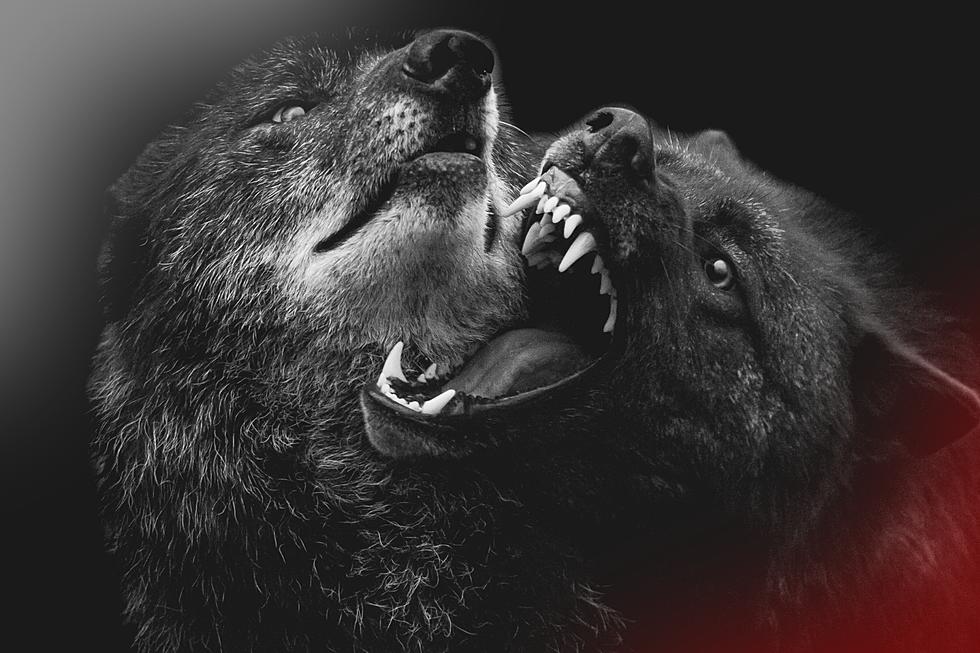
Conservation Controversy: WA’s Approach to Gray Wolves
► The Wolves Are Back In Washington And Growing In Number
► Washington's Department Of Fish And Wildlife Wants Public Input
► It's an Old West Showdown - Wolves Versus Ranchers
Why You Should Care - The gray wolf is currently listed as a state endangered species. The Washington Department of Fish and Wildlife (WDFW) wants to change that classification from "endangered" to "sensitive" and to do that they need public input. A change in status likely means some adjustment in management practices.
<a href="https://wdfw.wa.gov/newsroom/wdfw-opens-public-comment-period-rule-making-proposed-status-change-gray-wolf">This recommended </a>reclassification to sensitive reflects that progress and most accurately describes the current status of wolves in Washington, while also recognizing that wolves are not yet established in western Washington and should remain protected.

To Many, The Wolf Equals Danger And Death
About the last time wolves received any positive publicity was in the 3rd Century BC when a she-wolf allegedly raised Romulus & Remus, the mythical founders of Rome. Since then most of mankind has only known the wolf through myths and fairy tales such as The Big Bad Wolf and the Three Little Pigs, The Wolf that Ate Red Riding Hood's Grandma, the Wolf in Sheep's Clothing, Peter and the Wolf and the cold-hearted savagery of anyone described as a Lone Wolf. No wonder the first reaction of so many people is that the wolf equals danger and death.
In Washington, The Wolf Is The Comeback Kid
The gray wolf was eradicated from Washington and much of the West in the 1930s. For 60 years ranchers rested a bit easier until gray wolves were successfully reintroduced to Yellowstone Park in 1995. Since then, pack members have migrated on their own into Montana, Wyoming, Idaho, and Washington State in 2008.
For the past 14 years, Washington's wolf population has increased by about 23 % each year to a total today of at least 216 animals. WDFW field reports indicate eight new packs formed in 2022 including the Big Muddy pack in Klickitat County which is only an hour and a half drive south of Yakima.
Balancing Very Different Perspectives On The Value Of The Wolf
A rancher with a dead calf and a rifle doesn't see wolves the same way an environmentalist does. The war over wolves is the difference between seeing the wolf as a symbol of freedom and nature's natural order versus a threat to the very livelihood of a livestock producer. During the calendar year 2022, WDFW spent a total of $1,632,569 on wolf management activities, including reimbursement for wolf attacks on livestock, range riding, and specialized equipment, and an additional $1,210,105 for wolf management and research activities.
The WDFW says the challenge on the road ahead will be to find a way to
minimize the loss of cattle and other livestock without undermining the long-term prospects for the recovery of a self-sustaining wolf population
and for that, the WDFD would like your help.
What You Need To Know To Join The Pack Of Public Comment
The following timeline, which allows the public and the Commission time to see and consider information from both the PSR and the 2023 annual report, is as follows:
- Feb. 7, 2024 to May 6, 2024- Publish Periodic Status Review for the Gray Wolf and open public comment period on the rule proposal.
- By calling 855-925-2801 and entering project code 6505 to leave a voicemail,
- By emailing graywolf2024@publicinput.com,
- Or by mailing written comments to Washington Department of Fish and Wildlife, attention Wildlife Program, P.O. Box 43200, Olympia, WA 98504
- By going to publicinput.com/sepa_graywolf and submitting a written comment.
- A public hearing is scheduled for March 15-16 and a final decision is expected in late June.
For more details on the various classifications of wildlife protection, see this WDFD report.
Oregon Struggles Too
In Oregon, Congressman Cliff Bentz (OR-02) recently held a meeting seeking more information on the number of wolves to determine their impact on local communities.
Congressman Bentz stated:
The growing population of wolves across Oregon is wreaking havoc for ranchers, farmers, and sportsmen. Ranchers are tired of seeing their cattle chased around and killed and hunters are tired of seeing a decline in mule deer populations.
The meeting was held in preparation for an upcoming federal Congressional hearing on the topic of wolf management.
LOOK: Here are the pets banned in each state
Gallery Credit: Elena Kadvany
LOOK: Stunning animal photos from around the world
Gallery Credit: Nicole Caldwell




